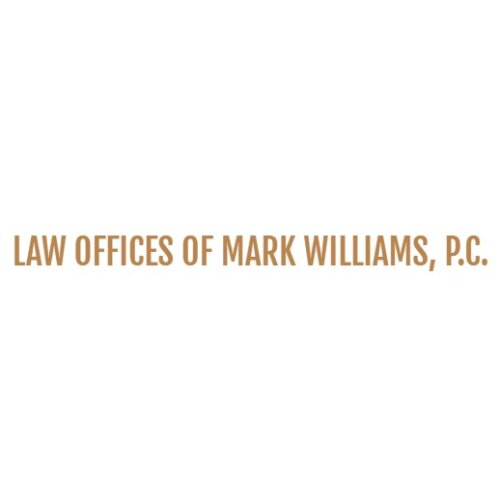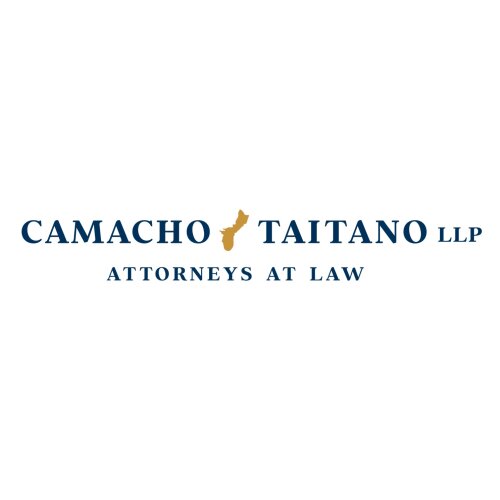Best Energy, Environment & ESG Lawyers in Hagåtña
Share your needs with us, get contacted by law firms.
Free. Takes 2 min.
List of the best lawyers in Hagåtña, Guam
About Energy, Environment & ESG Law in Hagåtña, Guam
Energy, Environment & ESG (Environmental, Social, and Governance) law in Hagåtña, Guam covers a range of legal regulations and standards that affect how businesses and individuals interact with natural resources and the local environment. Guam, a U.S. territory, maintains unique ecological features and cultural traditions that influence its approach to these issues. Energy law addresses how energy is produced, managed, and consumed, while environmental law focuses on the protection and sustainable use of natural resources. ESG principles are increasingly important, guiding organizations to operate ethically and sustainably, taking into account local communities, environmental impact, and responsible governance.
Why You May Need a Lawyer
Legal counsel in the area of Energy, Environment & ESG can be critical in a variety of situations in Hagåtña, Guam. Common scenarios include seeking permits for development projects, resolving disputes regarding land or water use, complying with environmental regulations, or managing waste disposal. Businesses may need advice on meeting ESG requirements for investors or government contracts. Individuals or nonprofits may require representation when challenging decisions that could harm the environment, or when advocating for public health and sustainable development. Legal guidance ensures your rights are protected while helping you navigate complex regulatory frameworks.
Local Laws Overview
Energy, Environment & ESG laws in Hagåtña, Guam are shaped by a mix of federal U.S. regulations and local statutes imposed by the Guam Legislature and regulatory agencies such as the Guam Environmental Protection Agency (GEPA) and the Guam Public Utilities Commission (PUC). Key legal areas include:
- Permitting and compliance obligations for development, construction, and energy projects
- Protection of endangered species and critical habitats under both local and federal laws
- Regulation of water rights, air quality, and waste management under GEPA oversight
- Requirements under the Guam Environmental Policy Act (GEPA) for Environmental Assessments or Impact Statements for certain actions
- Policies promoting renewable energy and efficient power generation by the Guam Power Authority
- Guidelines for responsible corporate governance and ESG disclosures that may impact businesses seeking investment or government contracts
Frequently Asked Questions
What agencies regulate environmental law in Guam?
The Guam Environmental Protection Agency (GEPA) is the primary local authority, working alongside federal entities such as the U.S. EPA and the Army Corps of Engineers.
Do I need a permit for a construction project near the ocean in Hagåtña?
Yes, coastal projects often require environmental impact assessment and permits from GEPA and potentially federal agencies to ensure compliance with shoreline and water quality regulations.
Is renewable energy supported by Guam law?
Yes, Guam has several policies promoting renewable energy development, including incentives and regulatory frameworks encouraging solar, wind, and other sustainable energy sources.
What kinds of environmental issues are most common in Hagåtña?
Common issues include water quality protection, solid and hazardous waste management, land use, preservation of natural habitats, and pollution control.
How does ESG reporting affect my business in Guam?
Strong ESG practices can improve your chances of obtaining investment, winning government contracts, and building community trust. Some public sector contracts may require ESG disclosures or compliance with certain standards.
Who should I contact if I discover illegal dumping or pollution?
You can report suspected violations directly to GEPA. In emergencies or if there is immediate public danger, you may also contact local law enforcement.
Does Guam have specific laws for indigenous land or traditional ecological knowledge?
Yes, certain statutes protect indigenous rights and recognize the importance of traditional ecological practices. Legal guidance can help you understand how these laws may apply to your situation.
What is the role of the Guam Power Authority in energy law?
The Guam Power Authority oversees the generation, distribution, and regulation of energy on the island, including implementing policies related to sustainability and energy efficiency.
Can individuals participate in public environmental decision-making in Guam?
Yes, public comment is typically invited during the permitting process and for major regulatory decisions. Local advocacy groups also play an active role in representing community interests.
How do I comply with the Guam Environmental Policy Act?
The Act requires that certain activities undergo environmental assessment or prepare an environmental impact statement. A lawyer can help determine the level of review required and assist with documentation and compliance strategies.
Additional Resources
If you need more information or assistance, consider reaching out to:
- Guam Environmental Protection Agency (GEPA) - For regulatory compliance, permits, and reporting violations
- Guam Power Authority - For energy projects, renewable initiatives, and utility regulations
- Guam Public Utilities Commission (PUC) - For utility oversight and consumer protection
- U.S. Environmental Protection Agency (Region 9) - For federal environmental standards and grant programs
- Legal Aid Society of Guam - For information on available legal assistance for individuals and nonprofits
- Local environmental and sustainable business organizations - For networking and advocacy support
Next Steps
If you require legal advice or representation regarding Energy, Environment & ESG in Hagåtña, Guam, start by gathering all relevant documents and details about your concern. Consult with a qualified attorney who has experience with Guam's environmental and energy laws. Many offer initial consultations to help assess your needs. If your matter involves a government agency, be prepared to comply with requests for information or documentation. Consider joining local organizations or attending public meetings to stay informed. Taking these steps will strengthen your position and help ensure your actions align with both local law and best practices for sustainability.
Lawzana helps you find the best lawyers and law firms in Hagåtña through a curated and pre-screened list of qualified legal professionals. Our platform offers rankings and detailed profiles of attorneys and law firms, allowing you to compare based on practice areas, including Energy, Environment & ESG, experience, and client feedback.
Each profile includes a description of the firm's areas of practice, client reviews, team members and partners, year of establishment, spoken languages, office locations, contact information, social media presence, and any published articles or resources. Most firms on our platform speak English and are experienced in both local and international legal matters.
Get a quote from top-rated law firms in Hagåtña, Guam — quickly, securely, and without unnecessary hassle.
Disclaimer:
The information provided on this page is for general informational purposes only and does not constitute legal advice. While we strive to ensure the accuracy and relevance of the content, legal information may change over time, and interpretations of the law can vary. You should always consult with a qualified legal professional for advice specific to your situation.
We disclaim all liability for actions taken or not taken based on the content of this page. If you believe any information is incorrect or outdated, please contact us, and we will review and update it where appropriate.
Browse energy, environment & esg law firms by service in Hagåtña, Guam
Hagåtña, Guam Attorneys in related practice areas.









